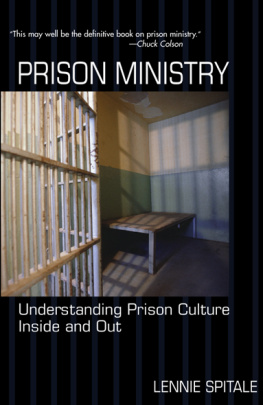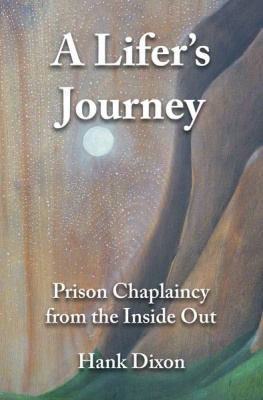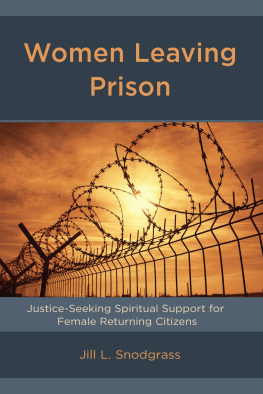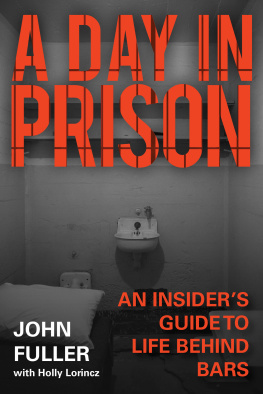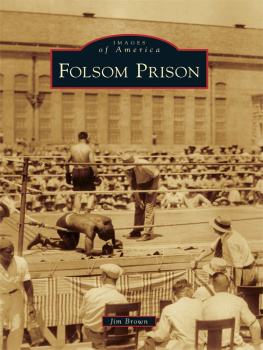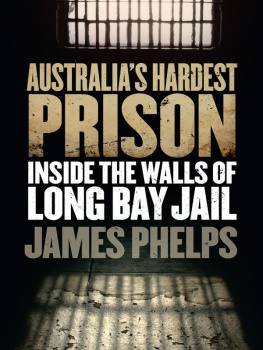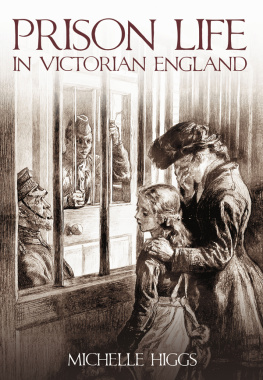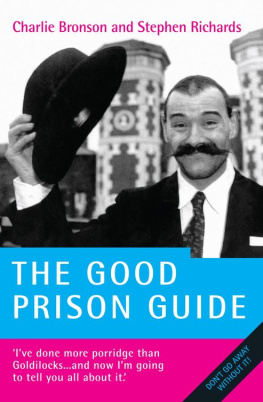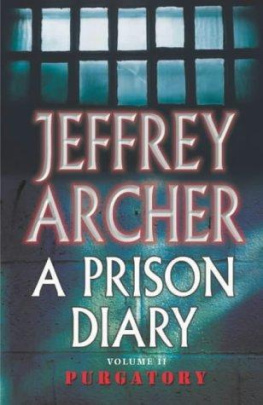Lennie Spitale - Prison Ministry: Understanding Prison Culture Inside and Out
Here you can read online Lennie Spitale - Prison Ministry: Understanding Prison Culture Inside and Out full text of the book (entire story) in english for free. Download pdf and epub, get meaning, cover and reviews about this ebook. year: 2002, publisher: B&H Publishing Group, genre: Religion. Description of the work, (preface) as well as reviews are available. Best literature library LitArk.com created for fans of good reading and offers a wide selection of genres:
Romance novel
Science fiction
Adventure
Detective
Science
History
Home and family
Prose
Art
Politics
Computer
Non-fiction
Religion
Business
Children
Humor
Choose a favorite category and find really read worthwhile books. Enjoy immersion in the world of imagination, feel the emotions of the characters or learn something new for yourself, make an fascinating discovery.
- Book:Prison Ministry: Understanding Prison Culture Inside and Out
- Author:
- Publisher:B&H Publishing Group
- Genre:
- Year:2002
- Rating:3 / 5
- Favourites:Add to favourites
- Your mark:
- 60
- 1
- 2
- 3
- 4
- 5
Prison Ministry: Understanding Prison Culture Inside and Out: summary, description and annotation
We offer to read an annotation, description, summary or preface (depends on what the author of the book "Prison Ministry: Understanding Prison Culture Inside and Out" wrote himself). If you haven't found the necessary information about the book — write in the comments, we will try to find it.
Empowering any pastor, educator, or lay leader in doing effective prison ministry by providing a thorough inside-out view of prison life.
Prison Ministry: Understanding Prison Culture Inside and Out — read online for free the complete book (whole text) full work
Below is the text of the book, divided by pages. System saving the place of the last page read, allows you to conveniently read the book "Prison Ministry: Understanding Prison Culture Inside and Out" online for free, without having to search again every time where you left off. Put a bookmark, and you can go to the page where you finished reading at any time.
Font size:
Interval:
Bookmark:



IMAGINE A LAND where children are forbidden, where playgrounds are never built, and where the laughter of little voices is never carried upon the air. Picture, if you will, a horizon of blue sky and cold, gray cement in all directions, punctuated only by an occasional treetop that can never be touched or climbed. Conceive, if you can, a country whose citizens never bear children, yet the census continues to record wild population growth. Consider a society that has banished the use of such diverse items as fresh fruit, chewing gum, and ballpoint pens with clear casings.
No taxicabs will ever be hailed from these streets; vehicles are not permitted. Here there are no bus stops, train stations, or parking garages. There are no automobiles, airplanes, or bicycles. All traffic is pedestrian, but running is prohibited by law. The city has one road leading in; there are none leading out. There are no shopping malls, grocery stores, or fast-food restaurants. Banks are unheard of, as are credit unions, employment agencies, or ATMs. Cash is extinct; plastic is forbidden. All the apparel worn by the inhabitants of this alien landscape is identical. Colors are predetermined by the system; style is irrelevant. All mail, in or out, is subject to search, seizure, and censure. Big Brother is a reality; your every step and position, every hour of the day, is known and monitored. And though the dark Orwellian night has fallen; the lights are on. Always. Somewhere.
Welcome to the Fourth Dimension, a parallel universe vaguely mirroring your own. Step out of your own universe for a moment if you will; your tour guide awaits you. The doors are open, but they will soon shut with a singular clang as you leave your own time zone. The culture here is as different as that of any foreign country, but most of the inhabitants speak your language. Welcome to the world of the incarcerated; their hospitality will surprise you.
The goal of this book is to present the reader with an inside-out view of prison life. That is, to view the prison culture more from the eyes of the inmate than from those of the external observer. It is an attempt to gain the perspective of the one within the box rather than from those without who, while perhaps often exposed to the culture, do not feel it in the same way as those who cannot go home at night.
The ultimate aim of this book is to help the reader understand the culture (from within the culture) so that those who hope to minister within its confines may be better equipped to operate, not only with compassion, but also with wisdom.
This is not a book of statistics, which, by their very nature, soon become obsolete. Nor is it entirely a reference work. It is a traveler's guide to a foreign country. It is meant to be of help to anyone who is interested in knowing more about what this unique territory is like and, more specifically, what the inhabitants are like. Anyone having an interest in understanding this culture would, in my humble opinion, gain some benefit from reading it. It is especially written, however, for those dear souls who are either traveling there already as volunteers or for those who are seriously considering doing so.
I believe that every church library should have this book available for the benefit of those who may consider their local prison or jail as a potential mission field. Just as we train our foreign missionaries in the culture and language of the countries to which they are being sent, why shouldn't we make the same preliminary training available to those who hope to penetrate this culture? My goal is that we might travel to this place innocent as doves and wise as serpents, finding the best way to let a people who sit in darkness discover a great lightthe love of God and the forgiveness of sins found only in Jesus Christ.
By now, you are probably wondering what gives me the right to speak from the inmate's point of view. As a young man, I was locked up on several occasions and eventually served a prison sentence for an armed robbery that was later reduced to assault and robbery. I had a tremendous problem with anger and restlessness, coupled with an equally hostile attitude toward any form of authority. This included parents, schoolteachers, employers, military officials, police, and authority figures of any kind. The total time of my incarcerations was only three and one-half years. I was a short-timer by many people's standards, but as anyone who has ever done time will tell you, even one day is too long.
On becoming a Christian in 1975, I experienced the overhaul of my life that only Jesus Christ can bring. He immediately cured the restlessness by bringing me into peace with him. Over a fairly short period of time, he also brought my anger under the control of the Holy Spirit. In February 1977, I began to lead a Bible study in a local jail and less than two years later was called into full-time prison ministry. I have never looked back; I know that God raised me up for this very work.
Although a large portion of my exposure to Christian prison ministry has been back on the tiers with the men in their own living areas and at the doors of their cells, that alone would not have given me the feeling. Doing time is a feeling. It feels like something, just as living in any other reality feels like something. Once or twice a year I still experience dreams in the night of going back to prisondreams so vivid that I awaken with the feeling of returning to prison. I experience afresh the turmoil of emotions connected with the event: the hopelessness, the fear, the separation from my loved ones, and the awful, indomitable enemy of time that stretches out before me like a thick, steel chain that can never be broken.
I have become convinced that God himself allows these dreams so I might not forget the feeling of incarceration. He has called me to this work. I believe that the dreams, with their attending emotions, are a part of his design to keep me in touch with the unspoken anguish of a jailed consciousness. They bring back the reality of remembering how it felt to be leaving my loved ones until every long day that the calendar demanded had been paid in full. Even as I write this, I can still remember that awful feeling of helplessness and hopelessness.
Inmates are not different from anyone else; they simply live in a different culture. We have all sinned, and no person is the sum total of the sins he or she has committed. Unfortunately, that is precisely what many people on the outside have done with those in prison. Since they know nothing else about them, they have reduced the lives of inmates to the sum of a few paragraphs in the papers or a few sound bites on the evening news. On occasion I have met and ministered to the notorious faces behind the national headlines. They are little people who were charged with big crimes and are now inextricably caught up and forever associated with those crimes. And so it is with the thousands who seldom make much more than a few paragraphs in the local papers. But none of us is the sum total of the sins we have committed; there is more to us than that.
I am not saying that there should not be punishment for a crime or even that the natural consequences of such an action should not fall upon those who commit them. But I trust that I am speaking to those people who truly desire to understand the people who live behind those wallsfor the purpose of ministering to them. Such people should understand that the only real difference between them and the people in prison is about eight feet of bricks and cement. Little else.
Next pageFont size:
Interval:
Bookmark:
Similar books «Prison Ministry: Understanding Prison Culture Inside and Out»
Look at similar books to Prison Ministry: Understanding Prison Culture Inside and Out. We have selected literature similar in name and meaning in the hope of providing readers with more options to find new, interesting, not yet read works.
Discussion, reviews of the book Prison Ministry: Understanding Prison Culture Inside and Out and just readers' own opinions. Leave your comments, write what you think about the work, its meaning or the main characters. Specify what exactly you liked and what you didn't like, and why you think so.

